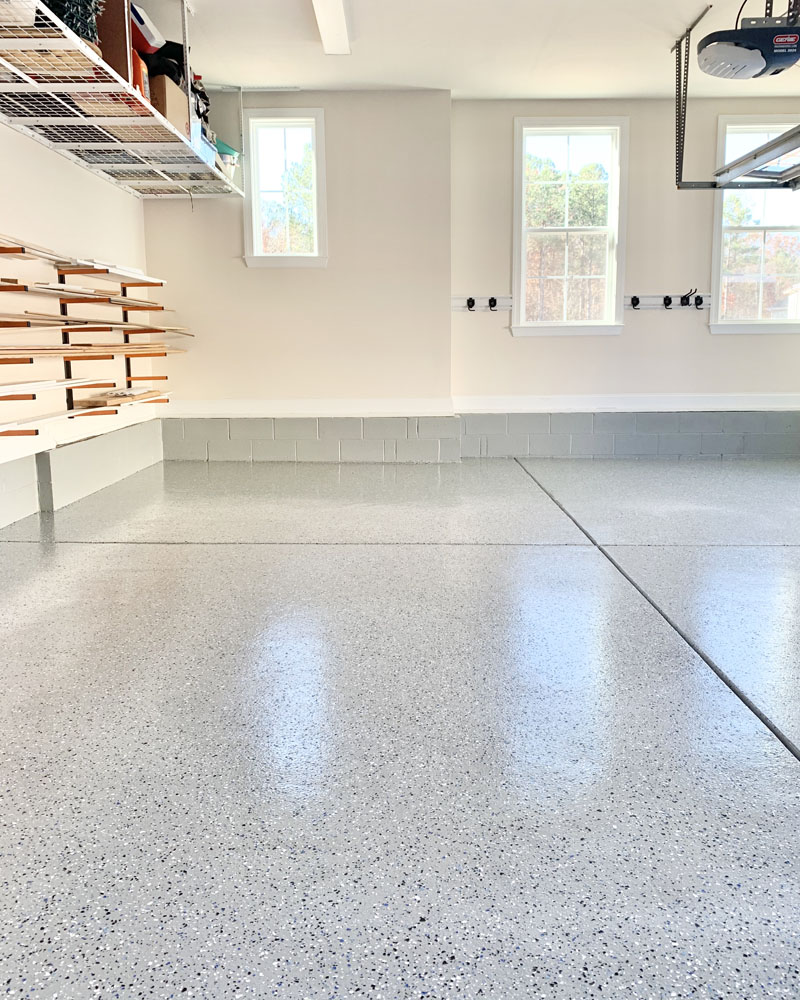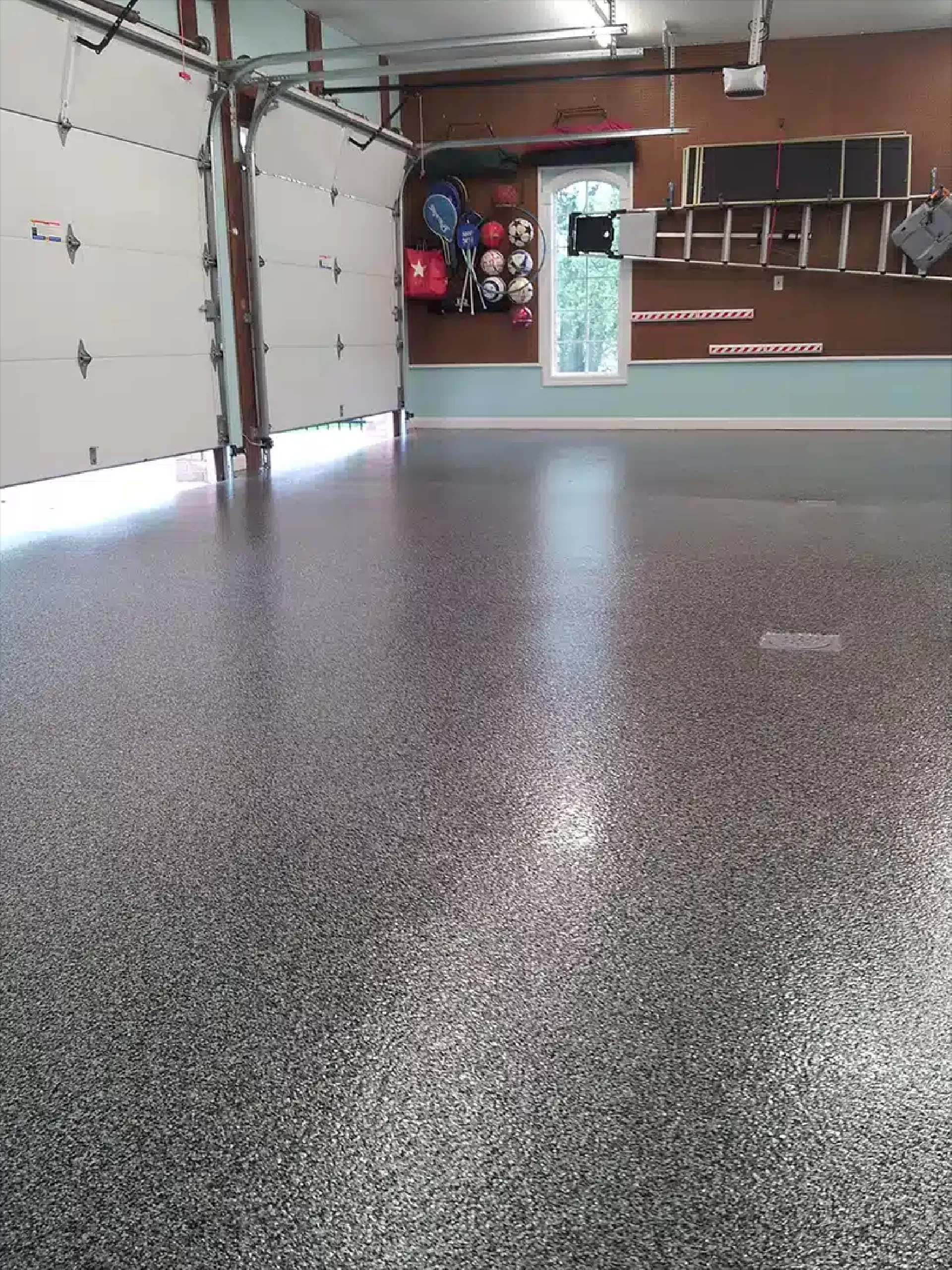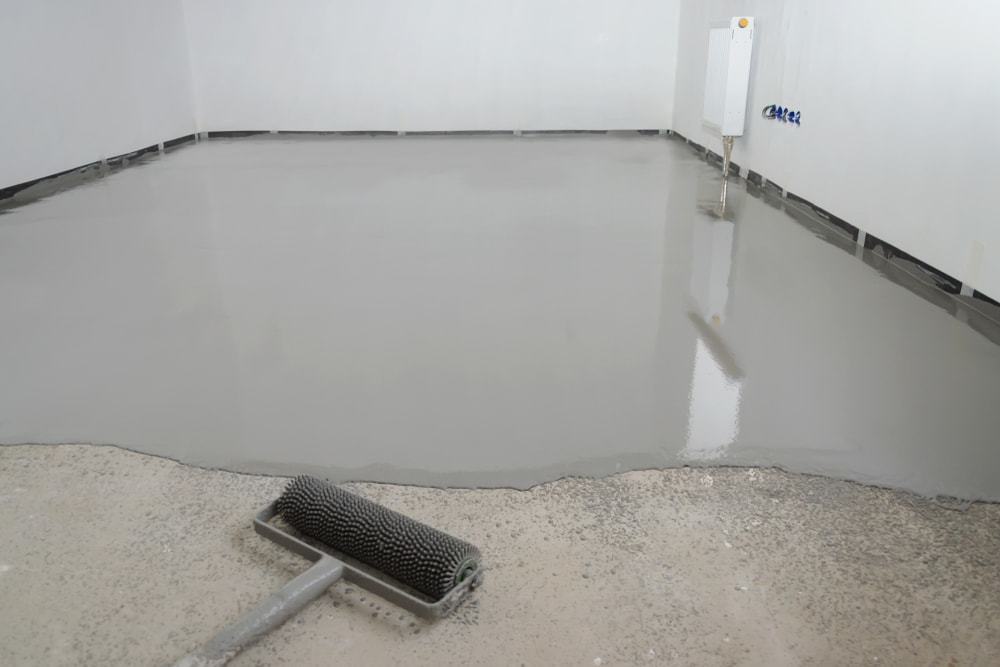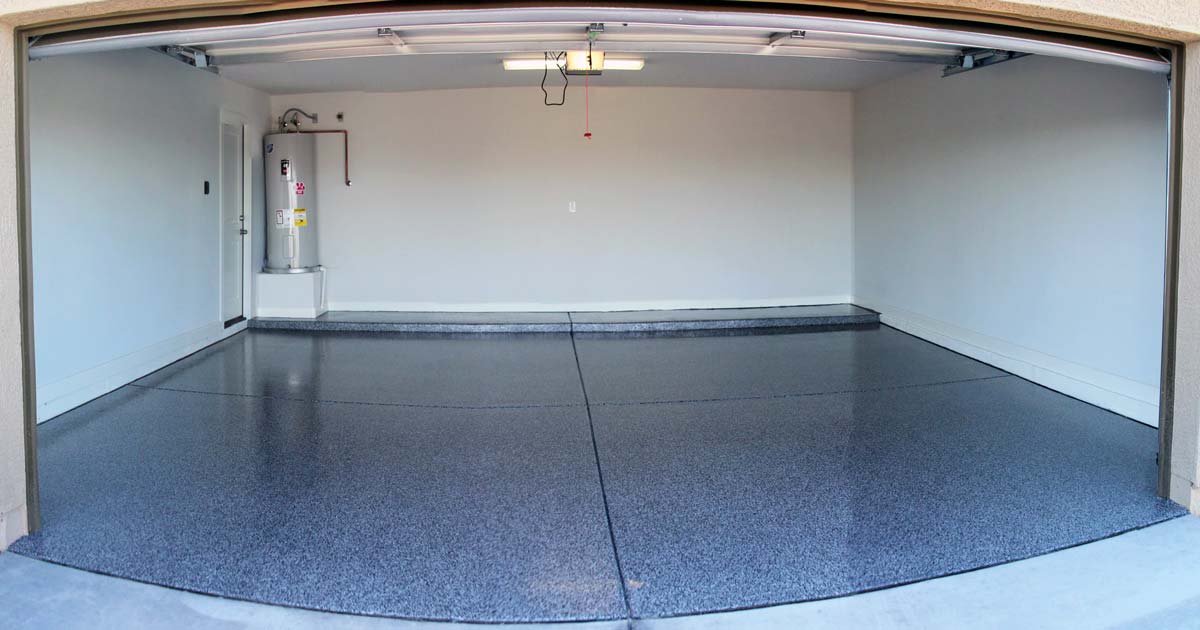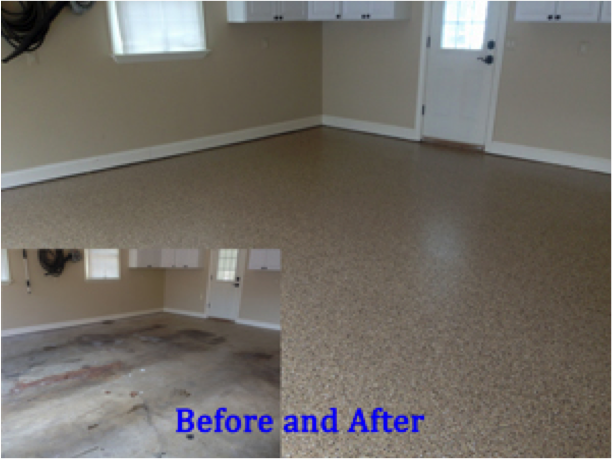What Is Garage Floor Resin and Why Should You Use It?
Garage floor resin is a protective coating made from materials such as epoxy, polyurethane, or polyaspartic compounds. It is applied to garage floors to enhance durability, create a polished look, and protect the surface from wear and tear. This material is gaining popularity due to its ability to transform ordinary concrete floors into visually appealing and functional surfaces.
- Understanding Garage Floor Resin: Garage floor resin is more than just a decorative finish. It serves as a robust layer that resists stains, chemicals, and heavy impact. It adheres to concrete floors, sealing imperfections and providing a smoother, non-porous surface. This makes it an ideal choice for both residential and commercial garages.
- A Durable Solution: Concrete floors are prone to cracks, stains, and other damages over time. Resin adds a durable coating that can withstand the rigors of a busy garage, including the weight of heavy vehicles, tools, and equipment. Its high resistance to abrasions makes it a preferred choice for high-traffic areas.
- Aesthetic Appeal: Garage floor resin is available in various colors, textures, and finishes, allowing homeowners to customize the look of their garage. Whether you prefer a high-gloss finish or a subtle matte look, resin can provide a sophisticated appearance that elevates the overall design of your garage.
- Protective Features: One of the key benefits of resin is its protective qualities. It acts as a barrier against moisture, oil spills, and chemical leaks, which can damage concrete floors. By preventing these elements from seeping into the concrete, resin extends the lifespan of your garage floor.
- Easy to Clean and Maintain: Unlike traditional concrete floors, resin-coated surfaces are easy to clean and maintain. Dust, dirt, and liquids can be quickly wiped away without leaving stains or marks. This makes it an ideal option for those seeking a low-maintenance flooring solution.
- Cost-Effective in the Long Run: While the initial cost of applying resin may be higher than other coatings, its long-term benefits make it a cost-effective solution. With minimal upkeep and extended durability, resin floors save money on repairs and replacements over time.

Types of Garage Floor Resin: Finding the Best Fit for Your Space
Choosing the right type of resin for your garage floor is essential for achieving the desired durability, appearance, and performance. Different types of resin have unique characteristics suited to specific needs.
Epoxy Resin: The Most Popular Choice
Epoxy resin is a versatile and widely used option for garage floors. Known for its strength and durability, it creates a thick, glossy surface that resists chemicals, stains, and abrasions. Epoxy is ideal for garages with heavy vehicle traffic or frequent exposure to chemicals.
Polyurethane Resin: Flexible and Durable
Polyurethane resin is known for its flexibility and resistance to UV light. Unlike epoxy, it does not yellow or discolor over time. This makes it an excellent choice for garages with large windows or doors where sunlight exposure is significant.
Polyaspartic Resin: Quick and Efficient
Polyaspartic resin is a relatively newer option that offers a faster curing time. It can be applied in a single day, making it a time-efficient choice for homeowners who want a quick transformation. Additionally, it provides excellent durability and resistance to temperature fluctuations.
Acrylic Resin: Budget-Friendly Option
Acrylic resin is a cost-effective choice for light-duty garages. It is easy to apply and provides a smooth finish. However, it may not be as durable as epoxy or polyurethane, making it less suitable for heavy-use areas.
Hybrid Resin Coatings
Some coatings combine the benefits of multiple resins, such as epoxy and polyurethane. These hybrid options offer enhanced durability, UV resistance, and customization. They are ideal for those seeking a premium finish with superior performance.
Choosing the Right Type for Your Needs
The choice of resin depends on factors such as budget, usage, climate, and aesthetic preferences. Consulting with a professional can help you determine the best type of resin for your specific requirements.
Step-by-Step Guide to Applying Garage Floor Resin
Applying garage floor resin involves careful preparation, proper tools, and attention to detail. Follow these steps to achieve a professional-grade finish.
Prepare the Surface
- Clean the garage floor thoroughly to remove dust, dirt, and debris.
- Repair any cracks or imperfections using a concrete patching compound.
- Etch the floor with an acid solution to enhance adhesion.
Gather the Necessary Materials
- Resin (epoxy, polyurethane, etc.)
- Paint roller or brush
- Mixing bucket and paddle
- Protective gear, including gloves and goggles
Mix the Resin
- Combine the resin and hardener according to the manufacturer’s instructions.
- Mix thoroughly to ensure even consistency.
Apply the First Coat
- Use a roller to apply the resin evenly across the floor.
- Allow the first coat to dry for the recommended time.
Add Decorative Elements
- If desired, sprinkle color flakes or other decorative elements while the resin is still wet.
- These can add texture and enhance the floor’s appearance.
Apply the Final Coat
- Once the first coat has cured, apply a second layer for added durability.
- Allow the floor to cure completely before moving heavy items back into the garage.
Advantages of Using Resin for Your Garage Floor
Garage floor resin offers a multitude of benefits, making it a popular choice among homeowners and commercial property owners. Its durability, aesthetic appeal, and protective qualities set it apart from other flooring solutions.
Superior Durability
Garage floor resin is built to last. It resists wear and tear from heavy vehicles, tools, and equipment. Unlike bare concrete, which can crack and degrade over time, resin forms a sturdy protective layer, ensuring long-term resilience.
Resistance to Chemicals and Stains
Spills are common in garages, from motor oil to cleaning solutions. Resin floors are non-porous and resist penetration by chemicals, oils, and stains. This quality not only keeps the floor looking clean but also prevents lasting damage.
Enhanced Aesthetic Appeal
Resin coatings are available in a wide range of colors, patterns, and finishes. Whether you prefer a sleek, glossy look or a textured surface with decorative flakes, resin offers endless customization possibilities to match your style.
Improved Safety Features
Many resin coatings come with slip-resistant additives, ensuring a safer walking surface, even when wet. This is especially important in garages where spills and water accumulation are common.
Low Maintenance
Resin-coated floors are incredibly easy to maintain. A simple sweep and occasional mop keep the surface clean and shiny. This low-maintenance feature makes it a hassle-free solution for busy households or commercial settings.
Long-Term Cost Efficiency
While the initial installation may seem costly, the durability and minimal upkeep of resin floors translate to long-term savings. You’ll spend less on repairs, replacements, and cleaning supplies, making it a wise investment.
Common Mistakes to Avoid When Using Garage Floor Resin
Applying garage floor resin requires careful planning and execution. Mistakes during the process can compromise the final result, leading to an uneven finish or reduced durability. Here’s what to watch out for.
Skipping Surface Preparation
Failing to properly clean and prepare the floor is one of the most common mistakes. Dirt, grease, and moisture can prevent the resin from adhering correctly, leading to peeling or bubbling over time.
Ignoring Weather Conditions
Temperature and humidity play a crucial role in the curing process of resin. Applying resin in extremely hot, cold, or humid conditions can cause improper bonding and result in a weak or uneven coating.
Incorrect Mixing of Resin and Hardener
The resin and hardener must be mixed in the exact proportions specified by the manufacturer. Too much or too little of either component can lead to improper curing, affecting the resin’s performance and appearance.
Rushing the Application Process
Applying resin too quickly or unevenly can leave roller marks, air bubbles, or thin spots. Take your time to ensure even coverage and smooth out any imperfections during application.
Neglecting Curing Time
Many people are tempted to move vehicles or tools back into the garage before the resin has fully cured. Premature use can damage the surface and compromise its longevity. Always follow the manufacturer’s guidelines for curing times.
Overlooking Protective Gear
Resin fumes can be harmful during application, and direct contact with the material can cause skin irritation. Failing to wear protective gear such as gloves, goggles, and masks puts your safety at risk.
Maintenance Tips for Long-Lasting Resin Floors
Maintaining a resin-coated garage floor is relatively simple, but following specific steps can extend its lifespan and preserve its appearance for years.
Regular Cleaning
- Sweep the floor weekly to remove dust, dirt, and debris.
- Mop with a mild detergent and water to clean up spills or stains.
- Avoid harsh chemicals, which can dull the finish over time.
Protect the Surface
- Use mats or pads under heavy tools, machinery, or vehicle tires to prevent scratches or indentations.
- Avoid dragging sharp or heavy objects across the floor.
Address Spills Immediately
- Although resin is resistant to stains, cleaning spills promptly ensures they don’t leave marks or become slippery hazards.
- Use a soft cloth or mop to wipe away liquids.
Monitor for Damage
- Inspect the floor periodically for signs of wear, such as small cracks, chips, or discoloration.
- Address minor issues promptly with a repair kit to prevent further damage.
Reapply Protective Coating
- Depending on usage, consider reapplying a topcoat every few years to maintain the shine and durability of the resin floor.
- Consult a professional for advice on timing and application.
Avoid Excessive Heat or Impact
- Resin is durable but can be damaged by extremely high temperatures or heavy impacts.
- Use heat-resistant mats under areas exposed to extreme conditions, such as welding or tire heating.
Myths about Garage Floor Coatings
Related Posts:
